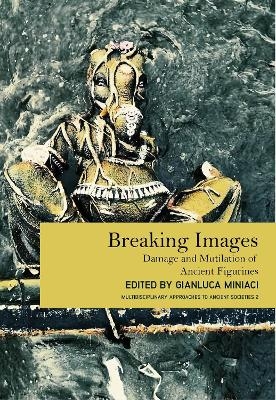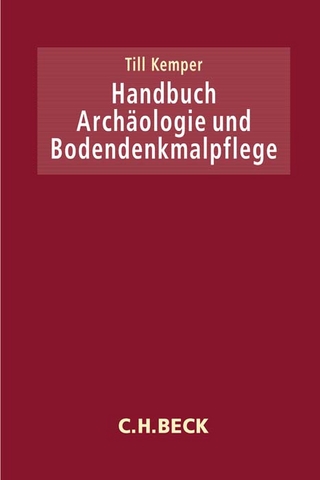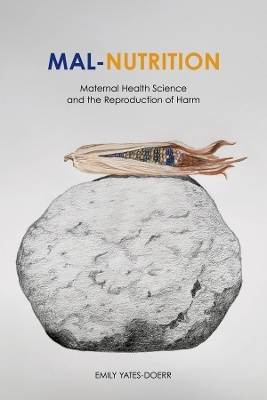
Breaking Images
Oxbow Books (Verlag)
978-1-78925-914-8 (ISBN)
Archaeological remains are ‘fragmented by definition’: apart from exceptional cases, the study of the human past takes into account mainly traces, ruins, discards, and debris of past civilisations. It is rare that things have been preserved as they were originally made and conceived in the past. However, not all the ancient fragmentary objects were the ‘leftovers’ from the past. A noticeable portion of them was part and parcel of the ancient materiality already in the form of a fragment or damaged item. In 2000, John Chapman, with his volume Fragmentation in Archaeology, attracted the attention of scholars on the need to reconsider broken artefacts as the result of the deliberate anthropic process of physical fragmentation. The phenomenon of fragmentation can be thus explored with more outcomes for a category of objects that played an important role inside the society: the figurines. Due to their portability and size, figurines are particularly entangled and engaged in social, spatial, temporal, and material relations, and – more than other artefacts – can easily accommodate acts of embodiment and dismemberment. The act of creation symmetrically also involves the act of destruction, which in turn is another act of creation, since from the fragmentation comes a new entity with a different ontology. Breaking contains the paradigms of life: creation and reparation, destruction and regeneration.
The scope of this volume is to search for traces of any voluntary and intentional fragmentation of ancient artefacts, creating, improving, and sharpening the methods and principles for a scientific investigation that goes beyond single author impression or sensitivity. The comparative lens adopted in this volume can allow the reader to explore different fields taken from ancient societies of how we can address, assess, detect, and even discuss the action of breaking and mutilation of ancient figurines.
Gianluca Miniaci is Associate Professor in Egyptology at the University of Pisa, Honorary Researcher at the Institute of Archaeology, UCL – London and Chercheur associé at the École Pratique des Hautes Études, Paris. He is currently co-director of the archaeological mission at Zawyet Sultan (Menya, Egypt) and principal investigator for the project PROCESS (fingerprints on clay figurines). He is author of several volumes, including Rishi Coffins (2011), The Middle Kingdom Ramesseum Papyri Tomb (2021) and The Treasure of the Egyptian Queen Ahhotep (2022) and more than 100 scientific articles.
Contributors
Preface
At the dawn of a break: The agency of the damage
1. In the footsteps of Auguste Rodin: Fragmentation is not an end
Gianluca Miniaci
2. The meaning of deliberate figurine fragmentation: Insights from the Old and New Worlds
John Chapman and Bisserka Gaydarska
Beyond ritual: When the whole cracks
3. In the beginning: Exploring integrity of anthropomorphic images in prehistoric Europe
Elisabetta Starnini
4. When garbage is art: Broken ceramic figural objects from ancient Honduras
Jeanne Lopiparo and Rosemary A. Joyce
5. Parts, not wholes: Long histories and negative space analysis
Stacy Boldrick
6. Not whole yet holy: Some breakage rituals and their significance in Hinduism and other religions of India
Urmi Chanda
The materiality of the damage: Searching for the intentionality
7. Broken beyond repair. Reflections on the intentionality of breakage and its archaeological identification regarding Naqada period clay figurines
Axelle Brémont
8. The materiality of the damage in the faience figurine corpus from late Middle Bronze Age Egypt (1800–1550 BC)
Gianluca Miniaci
9. Breaking into pieces: An experimental investigation into fracture behaviours in ceramic female figurines
Paulina Wandowicz
10. Intentionality in the breaking. A case study of intentional damaging of figurines at Neolithic Tell Sabi Abyad (Syria) and Çatalhöyük (Turkey)
Monique Arntz
11. Fragmented or intact – Mycenaean figurines and figures in cult and burial contexts
Ann-Louise Schallin
Inside the fragmentation: Exploring methods and technologies
12. Made it for breaking it? Assessing fragmentation of the Lahun figurines (Egypt, MBA II, c. 1800–1700 BC)
Vanessa Forte
13. Displaying the fragmented: Damaged and mutilated ancient Egyptian figures from Sir Charles Nicholson’s collection
Candace Richards and Michelle F. Whitford
14. Broken collections: A 3D approach to the digital reunification and holistic study of dispersed terracotta figurines assemblages
Valentina Vassallo
Concluding remarks
Afterword: Strong at the broken places?
Caitlín Eilís Barrett
| Erscheinungsdatum | 21.02.2023 |
|---|---|
| Zusatzinfo | B/W |
| Verlagsort | Oxford |
| Sprache | englisch |
| Maße | 170 x 240 mm |
| Themenwelt | Geisteswissenschaften ► Archäologie |
| ISBN-10 | 1-78925-914-2 / 1789259142 |
| ISBN-13 | 978-1-78925-914-8 / 9781789259148 |
| Zustand | Neuware |
| Informationen gemäß Produktsicherheitsverordnung (GPSR) | |
| Haben Sie eine Frage zum Produkt? |
aus dem Bereich


